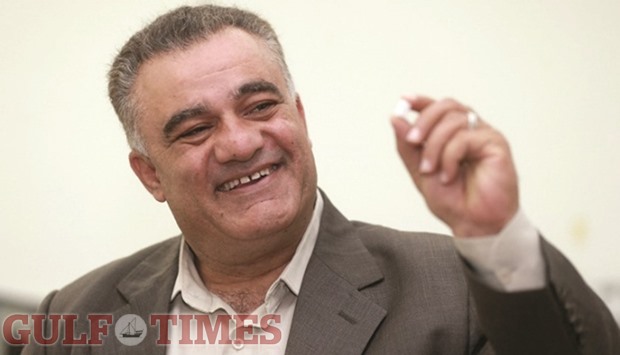December 2, 2010 is a day forever remembered by every football fan across the Middle East. The day that Qatar was awarded the right to host the 2022 FIFA World Cup changed the sporting face of the region – but it was not only the lives of sports enthusiasts that changed that day.
Dr Khaled Saoud, a physics professor from Virginia Commonwealth University in Qatar, remembers exactly where he was.
“I was in a restaurant with my family,” he told www.sc.qa. “There was a TV on – then suddenly outside all the streets filled up with cars and people going crazy with celebration. It was big news for this country and I immediately felt excited.
“It is the dream of so many people when they are young to attend one of these matches – and now we would all have the chance right here at home.”
Born in Jordan and having spent much of his working life in America, Dr Khaled is a lifelong football fan. But he is also a prominent scientist in the field of nanomaterials and nanotechnologies – and as soon as the announcement was made, he began thinking about how he could play his part in the tournament.
“I was naturally excited from a fan’s perspective,” he continued. “But also as a scientist I instantly began thinking about what I could do to become a part of this.
“I immediately began thinking about the environment around us here in Qatar. Heat is a big thing. I was trying to find new ways to tackle these problems.”
Although brimming with ideas and excitement, and with a lifetime of research behind him – it was not until a few years later, in 2015, that Dr Khaled got his chance to officially become involved in the 2022 FIFA World Cup – thanks to Challenge 22, a Supreme Committee for Delivery & Legacy (SC) innovation programme.
Challenge 22 aims to unite, inspire and challenge the region’s brightest minds, providing innovative thinkers with the opportunity to have their ideas showcased in front of an audience of billions in 2022 and beyond.
“When I heard about Challenge 22, the first impression was ‘well this is the time for me’,” Dr Khaled continued. “Within three days I had come up with the proposal – because the ideas were already there – and I submitted at the very last minute. Just like a lot of my students do!”
After submitting his idea – a sustainable way to create a more durable, less flammable and lighter insulation material – a couple of months passed before he was informed he was being invited to the second round.
Programme organisers and stakeholders arranged for him to meet with coaches to further the proposal from a commercial standpoint.
“They gave us extensive training and a couple of coaches from the business world,” he continued. “I had some business experience, but I was not a businessman. What I had done I had always done naturally and without training. So this help was very valuable to me.”
Fast forward one year and Dr Khaled has been able to hire two scientists to help him continue his work. They meet every day at VCUQatar, and admit the project has taken over their lives – in a good way. “This project is very special,” he said. “I think Qatar has suffered at least four or five major incidents of fires. The insulation material is made of polystyrene – so it works against you.
“The experiments we have conducted here show that the material used in these places takes less than 50 seconds to shrink and to burn. With our product added as a coating, it can be exposed to 45 minutes of heat with minimal damage.”
And asked about the impact the FIFA World Cup, the SC and Challenge 22 have had on his project, his answer was resoundingly positive.
“It’s accelerated it completely,” he said. “It has enabled me to get materials I need, equipment I need, and to be able to hire some people to help me because one person cannot do everything. So it accelerated everything immeasurably.
“This is very exciting because it is the first time that my idea has come out of the lab. Most of the time the ideas will stay in the lab or become published in some scientific paper – but for the first time it is going to see the light and actually become a product.
“For the first time I can translate my ideas from the lab to something that will benefit people in their everyday life. That’s a huge payoff for me as a scientist.”
And finally, his message to anyone considering submitting an entry for the 2016 edition of the programme was clear.
“First identify problems. Identify problems that people could face, try to find a robust solution and try to demonstrate a very good practice in your research. “People are not only coming here to watch football, this is important to remember too. They are coming to the Gulf to experience the culture, the Arabic culture and explore the region. So any project should expose people to all of the very good things about our culture.”

Dr Khaled Saoud
